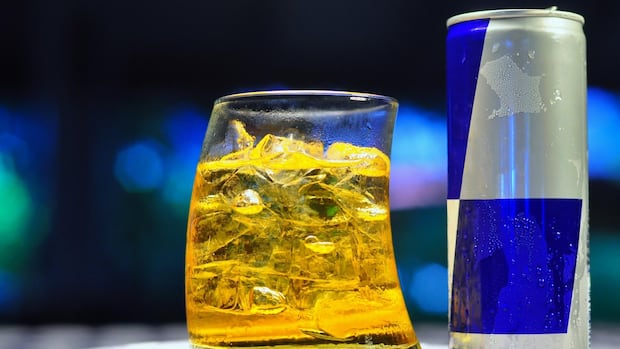England is planning to ban the sale of highly caffeinated energy drinks to kids under 16. Some experts say they’d like to see Canada do the same — or ramp up other restrictions on the drinks.
Dr. Olivier Drouin, a pediatrician at Montreal’s Sainte-Justine University Hospital Centre, says Canada should also restrict sales to those under 16.
“There’s no real benefit to these drinks. They don’t bring anything positive in teenagers’ lives and they do bring a potential risk,” Drouin said.
“I don’t see any downside to it.”
More kids drinking energy drinks, say researchers
British lawmakers have proposed banning companies from selling energy drinks that contain at least 150 milligrams of caffeine per litre to anyone under 16.
Many British stores already restrict the sale of the drinks to children. The proposed law would apply to businesses that have not yet taken the step, as well as in vending machines where children have regular access. Those who fail to comply would face a fixed fine: £1,500 (around $2,800 Cdn.) for small businesses, and £2,500 (around $4,670 Cdn.) for medium and large businesses.
David Hammond, a researcher who has studied caffeine consumption in young people in Canada, agrees. He says experts will be following the impact of the England’s move closely, to see how much of a difference it makes for young peoples’ health.
“I think it sets a precedent for other countries,” said David Hammond, who researches energy drink marketing and use in Canada.
England is moving to ban energy drink sales to kids under 16, citing health risks and rising youth consumption. Canada’s public health agency says its current rules, like warning labels and marketing limits, are enough.
Hammond, a professor at the University of Waterloo’s School of Public Health Sciences, says young people are consuming excessive — and possibly dangerous levels of caffeine in Canada.
“We know that lots of kids don’t consume them at moderate levels. They crush multiple cans a night.”
Drouin says research has shown a rapid increase in the number of teenagers consuming energy drinks on a daily basis.
“Some numbers in Ontario are 20 per cent — double the last five years,” said Drouin.
Health impacts not fully known
The health effects of energy drinks on a growing body are not fully known, Drouin says, because energy drinks are a relatively new phenomenon.
Too much caffeine can cause issues like anxiety, heart palpitations, and trouble sleeping. The risk is even greater for those who have underlying cardiovascular conditions. Drinking too much caffeine before working out, or mixing it with alcohol can amplify the risks even more, says Drouin.
And that’s not even going into the impact of other ingredients in those drinks, like sugar and other stimulants, which can have further negative impacts on health, according to Drouin.
In rare cases, young people have died from drinking energy drinks.
“I just don’t think a 14-year-old can weigh all of this in his decision to get an energy drink,” Drouin said.
Regulations in place for energy drinks, says Health Canada
Health Canada said in a statement there are already restrictions in place for energy drinks.
For instance, there are labelling requirements: Caffeinated energy drinks must have cautionary statements saying they are not recommended for those under 14, those who are pregnant or breastfeeding, or people sensitive to caffeine.
The Canadian Beverage Association, which represents companies like Monster Energy Company and Red Bull Canada, also pointed to the labelling requirement, saying in a statement it is “committed to ensuring Canadian consumers make informed beverage choices.”
But those labels simply aren’t enough to make kids aware of the potential dangers, says Hammond.
“Those cautionary statements require a microscope to read on different cans,” he said.
And teenagers are having a hard time finding — and reading the warning.
When asked by CBC to find the caution label on an energy drink, Yahya Hussein, 17, studied the can for about a minute, before asking if it was a trick question.
“You don’t even notice it,” said Hussein, who regularly drinks energy drinks before practicing sports.
Caffeine pouches containing up to 200 mg are being promoted on social media sites like TikTok, claiming to be a better alternative to energy drinks. But experts are calling for more regulation and warning young people that too much caffeine can be harmful.
“I think they should make the caution way bigger,” said the teenager.
Health Canada also restricts the amount of caffeine in an energy drink to a total of 180 milligrams per serving from all sources.
Another step in the right direction, Drouin says, would be to limit marketing that appeals to children — and ties the drinks to cartoons or sports.
“We owe our adolescents to protect them from the very aggressive marketing of drinks … that don’t bring anything positive in their life, and can bring a lot of negative consequences.”
Drouin is hoping the Britain’s move can bring momentum for Canada to address the use of energy drinks among kids.
“It’s not going anywhere, it’s worsening, and there’s very little being done right now.”








